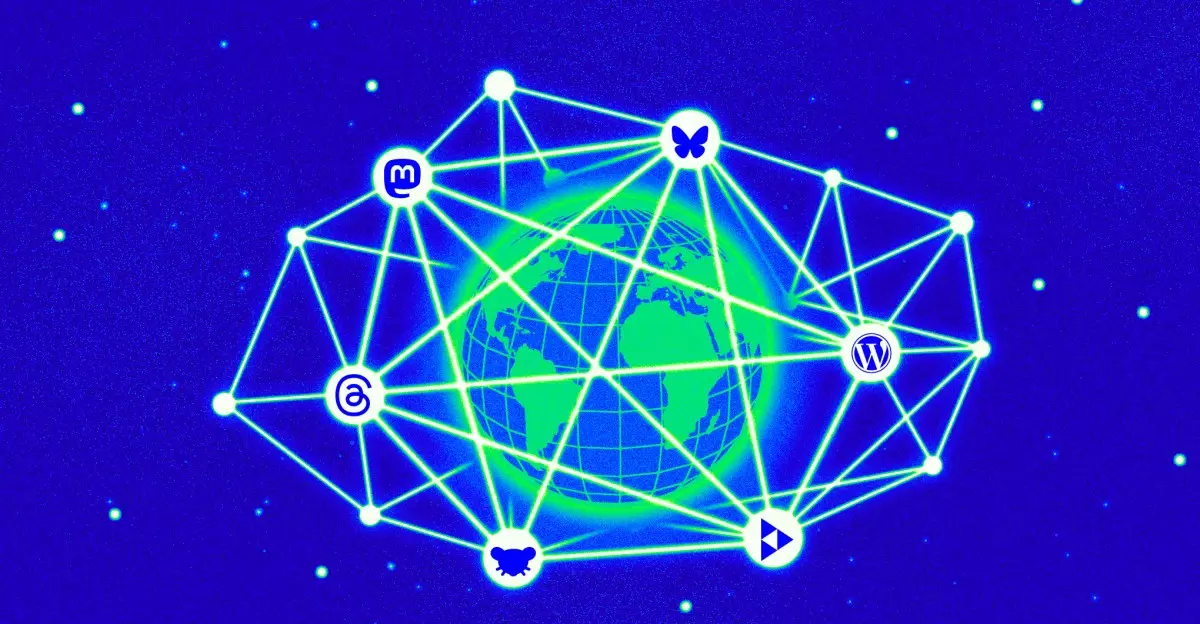In recent years, a significant shift has emerged in the way we interact online, driven by the growing penchant for decentralized social networks. Platforms like Bonfire Social, Channel.org, and Bounce are pioneering pathways that promote user empowerment and community-driven governance in the vast realm of the open web. This transformation is not merely a trend but a response to longstanding concerns about privacy, data ownership, and corporate influence in social media.
The concept of decentralized social networks is rooted in the desire to create spaces where users possess greater control over their online experiences. The ongoing discussions at events like FediForum highlight the earnest efforts by developers to innovate within this space, showcasing emerging platforms that aim to redefine how we connect and share information. This year’s gathering underscored the vitality of new applications, including Bonfire Social, which aspires to be more than another social platform; it aims to foster unique digital communities, each characterized by their governing principles and communal ethos.
Bonfire Social: A Home for Digital Communities
Bonfire Social has launched its 1.0 release, heralding its ambition to be the backbone of vibrant, user-governed digital communities. This platform is not just for sharing memes or updates; it equips users with tools to cultivate their spaces. With features that support custom feeds, threaded discussions, and individualized profiles, Bonfire Social’s approach reflects a progressive understanding of community dynamics in the digital world.
What sets Bonfire apart is its modular concept of “flavors,” which allows developers to tailor the platform according to specific group needs. The forthcoming Bonfire Community is aimed at private groups—an essential feature in today’s world where privacy concerns are paramount. Meanwhile, the Open Science variant illustrates the platform’s versatility, promoting academic collaboration without the constraints posed by traditional social networks. Such innovations could revolutionize online interactions, permitting users to explore knowledge freely rather than being trapped in a cycle dictated by advertisement-driven algorithms.
Channel.org: Curation at Your Fingertips
As digital noise reaches unprecedented levels, the ability to curate one’s online experience has become crucial. Enter Channel.org, designed to empower users to filter and organize content across various social platforms, thereby enhancing the quality of interaction in the open web. Users can engage with topics of interest by tracking hashtags and users, including bridging to Bluesky accounts, which reflects an evolution in the way we consume information.
The service is built on a unique architecture provided by the Mastodon server, reinforcing the ethos of community ownership and non-commercial governance. Another striking aspect of Channel.org is its robust filtering system, which allows individuals to mute irrelevant accounts and shield themselves from harmful content. In a landscape filled with misinformation and hostility, such safeguards position Channel.org as a necessary tool for responsible online engagement. Currently in an invite-only beta phase, the anticipation surrounding this filtering service indicates a strong demand for tailored social experiences.
Bounce: Seamless Transitions Between Platforms
The digital ecosystem is often fragmented, making it challenging for users to maintain continuity amidst numerous social apps. Bounce is addressing this issue head-on by enabling users to transition from Bluesky to Mastodon seamlessly, ensuring that followers and connections remain intact. The application from A New Social not only enhances user mobility but also symbolizes a broader trend toward interoperability among different social media platforms.
Such tools are essential in today’s age, where networks can rise and fall at alarming rates, leaving users stranded. Bounce’s functionality exemplifies an emerging digital literacy—one where individuals recognize the value of their networks and seek ways to preserve them as they navigate the ever-changing social landscape.
The array of innovations from Bonfire, Channel.org, and Bounce represents a critical pivot in social networking. These platforms offer not just functionality but also a vision for a decentralized internet—one that favors user agency over corporate monopolies. As creators refine their offerings, we stand at the precipice of a new era that champions individuality and community in the online sphere.


Leave a Reply